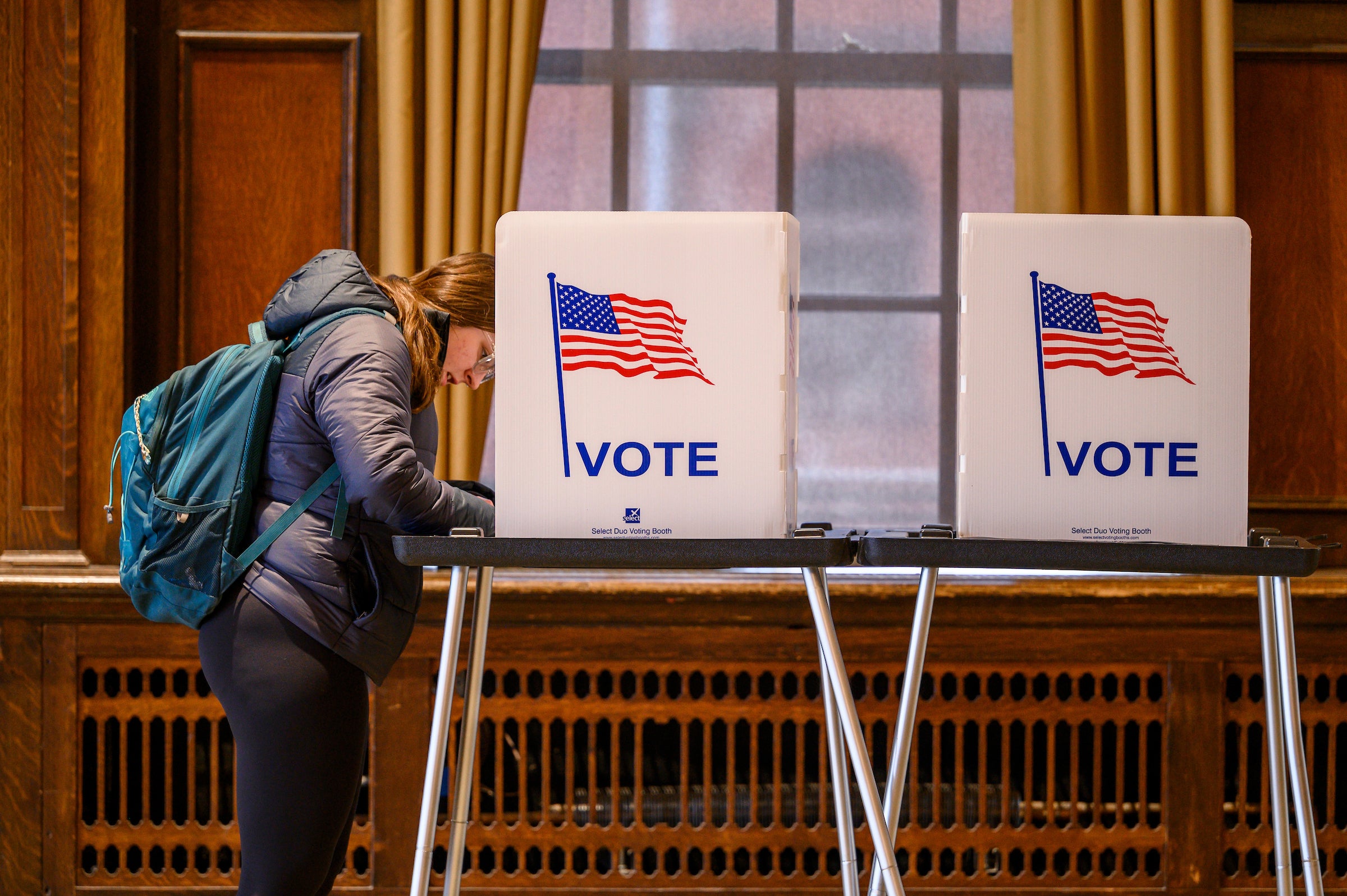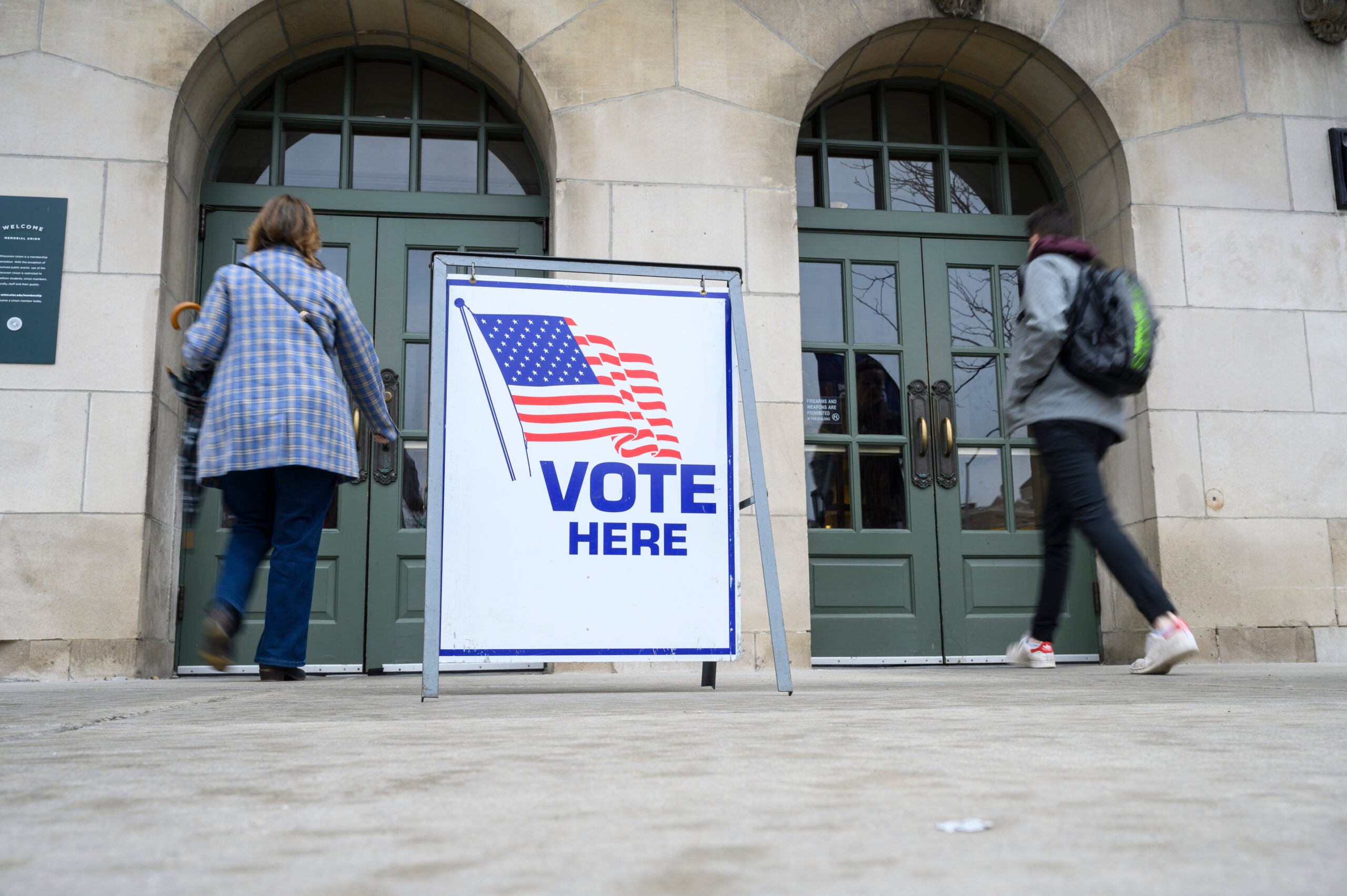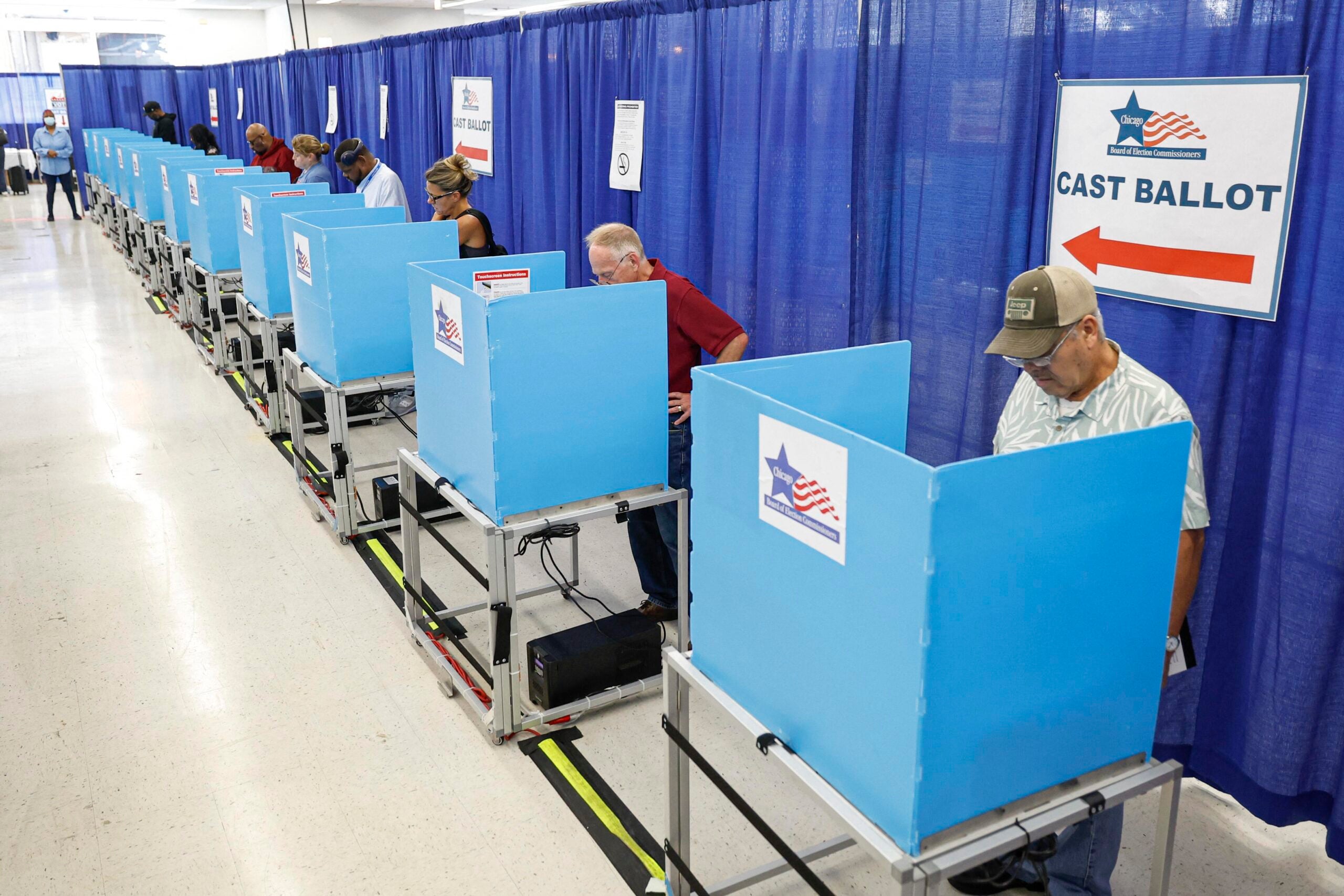An Ozaukee County Circuit Court judge found three Wisconsin Elections Commission members and the commission in contempt of court Monday after failing to comply with his order to remove thousands of people from the state’s voter rolls.
Judge Paul Malloy fined the commission’s Democrats, Ann Jacobs, Mark Thomsen and Julie M. Glancey, $250 each, daily until up to 209,000 outdated voter registrations are removed from the rolls. The Elections Commission has also been fined $50 a day.
Malloy said he didn’t think he went overboard in his December ruling. But the commission was “condescending” in their decision not to follow it.
Stay informed on the latest news
Sign up for WPR’s email newsletter.
Before his ruling, Malloy made reference to one of the election commissioners — who he did not name — appearing on a radio show and saying the commission didn’t have to comply with the court’s original order to remove people from the voter rolls. The incident bothered Malloy.
“If people are free to disregard a court’s order, where do you start and stop with that?” Malloy said. “How do you enforce that? What happens to our justice system if people say that’s just one guy’s interpretation? What happens when people no longer come to court when they are subpoenaed? Our justice system will cease to work.”
After the ruling, Karla Keckhaver, an attorney for the Elections Commission, immediately said the commission would appeal.
The case is being closely watched in battleground Wisconsin, a state President Donald Trump won by fewer than 23,000 votes in 2016.
The conservative group, the Wisconsin Institute for Law and Liberty (WILL) filed the contempt motion with Malloy, who ordered the state to remove the names Dec. 13. The motion asked Malloy to fine members of the commission up to $2,000 for each day they don’t comply.
The Elections Commission met twice after Malloy’s ruling, first on Dec. 16 and a second time on Dec. 30.
Both times, the panel’s three Republicans have voted to purge the state’s voting list while the three Democrats have voted to wait.
WILL also filed a motion with the Wisconsin Supreme Court asking justices there to take the appeal directly.
At the same time, the League of Women Voters of Wisconsin has filed a federal lawsuit seeking to block Malloy’s ruling. That lawsuit argues that removing these voters from Wisconsin’s registration rolls would violate their 14th Amendment rights under the U.S. Constitution.
Keckhaver asked Malloy to hold off on his decision until the Supreme Court could make its decision. She said she believes that could happen any day.
“Given the fact that this is a novel issue of statewide importance, the Supreme Court should weigh in before any deactivation should occur,” she said. “Deactivation is a drastic remedy and there is no basis for that here.”
WILL President Rick Esenberg said in this circumstance, a circuit court judge had no other option.
“Whether you agree with his order or not, it is his order and public officials have to comply with it,” Esenberg said. “Ultimately, the Supreme Court is the ultimate decider. But the key principal is when a judge rules, you have to comply until you get relief.”
Names To Be Removed
The list of voters whose names could be removed from registration rolls were flagged as having potentially having moved by a multi-state system known as the Electronic Registration Information Center, or ERIC. The system identifies movers by matching up their registration data with addresses from other government databases, like the Department of Motor Vehicles.
Part of the reason the Elections Commission decided not to immediately purge Wisconsin’s voter list earlier this year is that the ERIC system had problems in 2017, mistakenly removing some names from the state’s voter rolls even though they hadn’t moved.
With that experience in mind, the commission sent a piece of mail in October to roughly 232,000 voters who had been flagged by the system. It told them how to update their registration address but instructed them that they would not be automatically removed from voter rolls until 2021.
Two upcoming elections could also play a role in when courts issue further orders in this case. The primary for Wisconsin’s 7th Congressional District, along with the primary for Wisconsin’s 2020 Supreme Court race, are both scheduled for Feb. 18.
Editor’s note: Shawn Johnson contributed to this report.
Wisconsin Public Radio, © Copyright 2025, Board of Regents of the University of Wisconsin System and Wisconsin Educational Communications Board.




